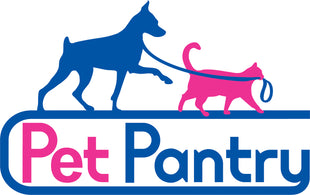Is It Safe to Feed Your Pet Raw and Kibble at the Same Time? Tips and Tricks for Balanced Feeding
Feeding your pet a mix of raw and kibble has become a hot topic in the pet care world. Some pet parents swear by it as a way to provide variety and maximize nutrition, while others warn against potential risks. So, is it safe to mix raw and kibble? Let’s break it down and uncover tips for making this feeding method work for you and your furry friend.
When Do I Switch from Puppy/Kitten Food to Adult Food?
Welcoming a furry friend into your life is a whirlwind of cuddles, chaos, and questions—one of which is bound to be: “When do I switch from puppy or kitten food to adult food?” Whether your little bundle of fur is a curious kitten or a boisterous puppy, their dietary needs change as they grow. Don’t worry; we’re here to guide you through this important milestone in your pet’s life!
Signs of Food Sensitivities
Did you know that your dog may have been experiencing food sensitivities without you realizing it? With food intolerances in dogs seemingly on the rise, it is as important as ever for pet owners to be aware of the warning signs so they can find solutions for improving their pet’s dietary health.
Best Way to Transition Pets to New Foods
It’s important to slowly transition your pet to a new food so their system has a chance to adapt to the change. The transition period should be at minimum, ten days and could take upwards of two weeks, depending on your pet’s sensitivity to change
How To Create A Puppy Schdule
Life can be pretty chaotic at times – work schedules, family commitments and community activities can keep us on the run. Adding a new puppy to the mix can be both a joy and a challenge, but with a little forethought and planning the transition of your new addition to the household can go smoothly and with little disruption.
Dietary Fiber in Pet Food
Dietary fiber is the non-digestible portion of a food that contributes to digestive health and stool quality. Dietary fiber in pet food can have various beneficial effects on your pet, depending on their needs.
Vitamins are Essential in Pet Food
Vitamin supplementation is used in kibble and wet pet foods to ensure it contains all the nutrients required to sustain life. Without vitamin supplementation, a food may not meet the nutrient requirements of a pet.
Feeding Your Dog Kibble And Wet Food: How Much and How Often?
When it comes to knowing how much kibble and wet food to feed our dogs, it can take a bit of trial and error. One of the most frequent questions we get asked is "how much do I feed my dog?" With all the different considerations of weight, activity level, age, and environment, that can be difficult to answer. However, we've compiled some of our top tips to help you decide how much to feed your canine companion.
Primal's Ultimate Guide To Digestive Support
It’s estimated that approximately 14% of all veterinary visits are related to some sort of gastrointestinal distress. A healthy gut and a happy digestive system can absorb more nutrients into your pet’s body, meaning more energy and more of the macronutrients and micronutrients they need to live their best and happiest life!
Joint Health in Dogs
Anyone who has arthritis in their joints can tell you that it is a debilitating condition that definitely cramps your lifestyle. The same thing goes for our furry friends, joint health in dogs is very important.
Taurine in Pet Food
There are 22 amino acids, the basic building blocks of protein. Animals can manufacture many of them in their liver, but some must be obtained in the diet—these are called ‘essential.’ In humans and dogs, taurine is not ‘essential’, since it can be synthesized within the body. But for cats, it’s a different story.












